Jun 3, 2025 11:25 AM
In Memoriam: Al Foster, 1943–2025
Al Foster, a drummer regarded for his fluency across the bebop, post-bop and funk/fusion lineages of jazz, died May 28…
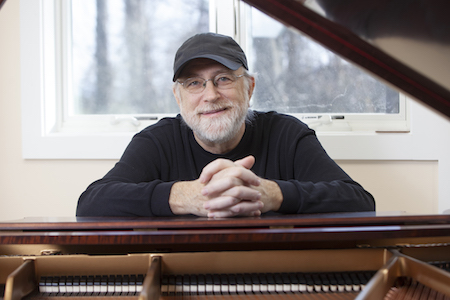
O’Connell said, “Jazz combined the sophistication I was looking for in music with the earth and the swing. I was determined to pursue it and develop myself as a jazz pianist.”
(Photo: Nick Carter)Best known as an inspired hybridizer of modernist jazz and Afrodiasporic idioms as an improviser and composer, Bill O’Connell moves in a funkier, Black American music direction on Change Is Gonna Come, his first recorded encounter with master drummer Steve Jordan. For his 17th album (and eighth for Savant), the 68-year-old pianist convened Jordan, bassist Lincoln Goines, conguero Pedrito Martinez and saxophonist Craig Handy in May.
The O’Connell–Jordan relationship dates to 1980, when they played on a month-long tour with Sonny Rollins, the dedicatee of “Sun For Sonny,” a rollicking calypso. They hit it off and stayed in touch, sharing the bandstand at a few benefit concerts — including a 2015 tribute to Rollins — sponsored by the Jazz Foundation of America, where Jordan served as musical director. At some point in 2020, after COVID-19 struck, O’Connell told his old friend: “We’re all not getting any younger. We’ve waited 40 years. Let’s do a record together.”
O’Connell spoke via Zoom from his home in Montauk, Long Island, where he conceptualized the seven originals and three O’Connellized covers that constitute the proceedings. “Steve is a very wide guy,” said O’Connell, who exploits Jordan’s idiomatic breadth and interactive instincts for what Hank Jones once called the “perfect tempo.”
On the set-opening “Moment’s Notice,” Jordan lays down a thematically cohesive admixture of backbeats and swing, allowing O’Connell — his fluid chops and personal refraction of Hancock-Tyner-Evans-Corea vocabulary on full display — to enable the flow to breathe. Jordan personalizes the Elvin Jones 3-feel on “Enough Is Enough,” a soul blues highlighted by Craig Handy’s wailing tenor solo; funks out on a stop-time treatment of “My Foolish Heart”; and seamlesly switches with Martinez between Afro-Latin and swing on “Chaos,” a turbulent 5/4 theme with Eddie Palmieri-esque connotations.
“Chaos” evokes O’Connell’s long association with the Fort Apache Band, which he joined in 1990 as a sub for Larry Willis on the say-so of Steve Berrios, a close friend from their days playing with Mongo Santamaria between 1977 and 1979. As Santamaria had done in the early 1960s with Herbie Hancock, he also encouraged O’Connell to write, and he placed O’Connell’s Hancockish “Little T” on the Grammy-winning Amanecer. “I came to the music from a humble place, with respect, not being a Latino,” O’Connell said. “Steve respected that, but he also heard how I had eyes to stretch with Latin jazz.”
O’Connell joined Santamaria a few years after arriving in Manhattan’s East Village from Oberlin Conservatory, where he’d studied the modern European canon. “I was into being a classical composer,” O’Connell said. “But jazz combined the sophistication I was looking for in music with the earth and the swing — I was determined to pursue it and develop myself as a jazz pianist.” He studied with Richie Beirach; networked with up-and-comers like Jim McNeely, Michael Wolff and Dennis Irwin at his college roommate’s Union Square loft; and embedded himself in New York’s then-vibrant Latin scene, learning the art of montuno construction.
As the ’80s progressed, O’Connell eschewed leader ambitions for the security of sideman gigs with, among others, Jon Lucien, Toshiko Akiyoshi, Astrud Gilberto, Gato Barbieri and Dave Valentin (an employer and colleague until his death in 2017). “I wanted a balanced life, between family and kids, and the New York sideman thing worked for me,” said O’Connell, who raised four children with his wife of 33 years. “I led gigs occasionally, but not from necessity. I’m a writer. Ideas for new projects and new music are always in my head, and in order to do what I wanted, I had to jump out more on my own. From 2000 on, I’ve consistently put out what I’m thinking about.” DB
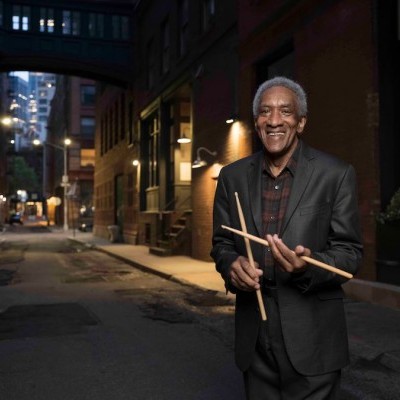
Foster was truly a drummer to the stars, including Miles Davis, Sonny Rollins and Joe Henderson.
Jun 3, 2025 11:25 AM
Al Foster, a drummer regarded for his fluency across the bebop, post-bop and funk/fusion lineages of jazz, died May 28…
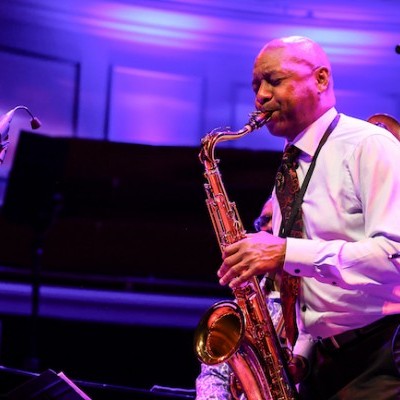
“Branford’s playing has steadily improved,” says younger brother Wynton Marsalis. “He’s just gotten more and more serious.”
May 20, 2025 11:58 AM
Branford Marsalis was on the road again. Coffee cup in hand, the saxophonist — sporting a gray hoodie and a look of…
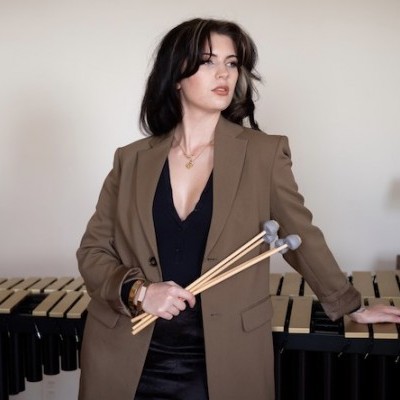
“What did I want more of when I was this age?” Sasha Berliner asks when she’s in her teaching mode.
May 13, 2025 12:39 PM
Part of the jazz vibraphone conversation since her late teens, Sasha Berliner has long come across as a fully formed…

Roscoe Mitchell will receive a Lifetime Achievement award at this year’s Vision Festival.
May 27, 2025 6:21 PM
Arts for Art has announced the full lineup for the 2025 Vision Festival, which will run June 2–7 at Roulette…
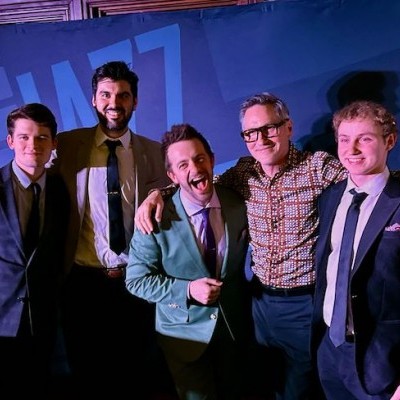
Benny Benack III and his quartet took the Midwest Jazz Collective’s route for a test run this spring.
Jun 3, 2025 10:31 AM
The time and labor required to tour is, for many musicians, daunting at best and prohibitive at worst. It’s hardly…